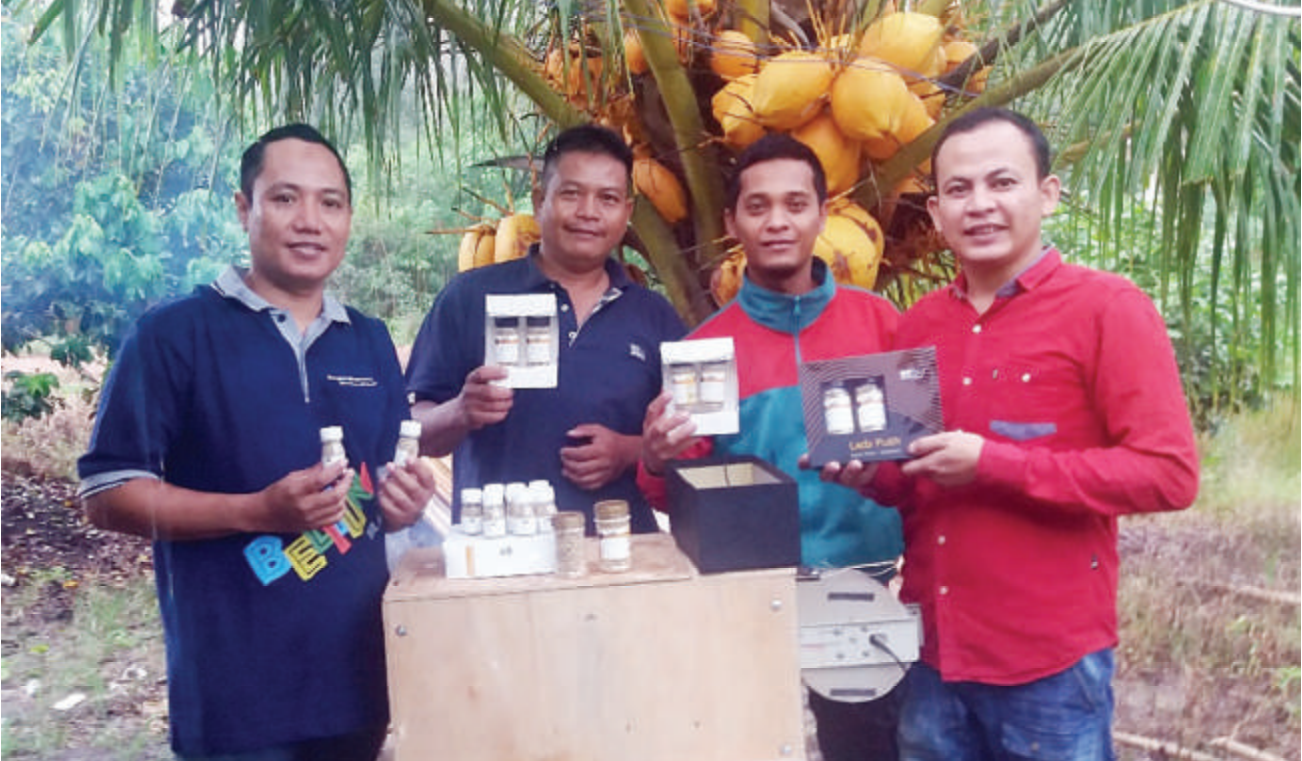Growing new entrepreneurs specifically in the archipelago country is a real challenge. In addition, the small islands are often synonymous with backwardness, connectivity, limited purchasing power and a small local market.
However, in general the islands are endowed with abundant wealth, but often it makes people complacent. In result, the community is not ready to think creatively as a basis for entrepreneurship.
In this regard, Muslim El Hakim Kurniawan, student of Doctoral Science in Management SBM ITB, together with SBM Lecturers, Gatot Yudoko and Mursyid Hasan Basri agreed, to grow new entrepreneurs in each archipelago, a very large effort was needed.
“The TPL-Scholarship Program, which was prepared for three years at the academy, and two years in the field plus the incentive of machine / equipment assistance for startup, does not guarantee participants grow to be new entrepreneur/Wira Usaha Baru (WUB)”, said Muslim, who is also currently serving in the Indag Province of Kep. Bangka Belitung
According to him, the temptation to be an employee of a Bank, BUMN or PNS is always interesting to be rejected. This, he stressed, was caused by factors in environmental conditions (in the islands) that were less supportive. “This also has an impact on the effectiveness of the WUB growth program,” he said.
According to Muslim, together with two colleagues revealed, that to increase the chances of success of the WUB program, there are at least 6 things that must be observed. Where the first thing is pasion and business instinct. “For this, of course during the process of recruiting participants must be measured by the spirit of the extent of his desire to become an entrepreneur” he said.
After that, it enters second item, which is sufficient initial planning. Where the prospective participants of the wub training should have to have prepared themselves with a business plan proposal that will be run later. This is important, because the committee can explore and assess how seriously the prospective trainees are to become the Deputy Governor.
“What about the short-term readiness, where this is also an input for the government what should be prepared to realize the business after the training” he said.
Muslim further said, from a case study of a white pepper entrepreneur (muntok white pepper) from Bangka Belitung, Andi Subandi, where from the results of observations and interviews, the third thing that must be possessed by an entrepreneur is to have basic knowledge about the product or service that will be offered to the market. “This will certainly reduce the risk of failure when plunging into the field,” he said.
In designing training to be provided, the government must pay attention to the niche market. This fourth thing, he added, must also be considered by the Deputy Governor to find out and anticipate the extent of market saturation. It is not enough to only consider the uniqueness, abundant raw materials, and large market potential. All that, it will be in vain if the “players” who are there are already too full (saturated).
“The solution, if you cannot compete in terms of products, might be able to compete in terms of service. Of course this will affect the training material” he explained.
In addition, another thing that must be considered is the dynamics of training methods. Where to look in the mirror from some of the regions that have successfully built WUB, we suggest to reduce the volume of training and replace it with comprehensive training from upstream to downstream. Where this will impact also on the amount of the budget that must be prepared that can be effective.
Muslim added, the last thing to consider is assistance and partnerships. This is crucial, because as in the case study experienced by Andi, knowledge and experience are sufficient. But like a baby who is just learning to walk, of course, it requires assistance, access to capital, markets and partnerships. “This is where the main role of the functional instructors of industry and trade (PFPP) is to assist the wub to become independent. This has become a field of credit numbers as well as charity for the PFPPs” he concluded




